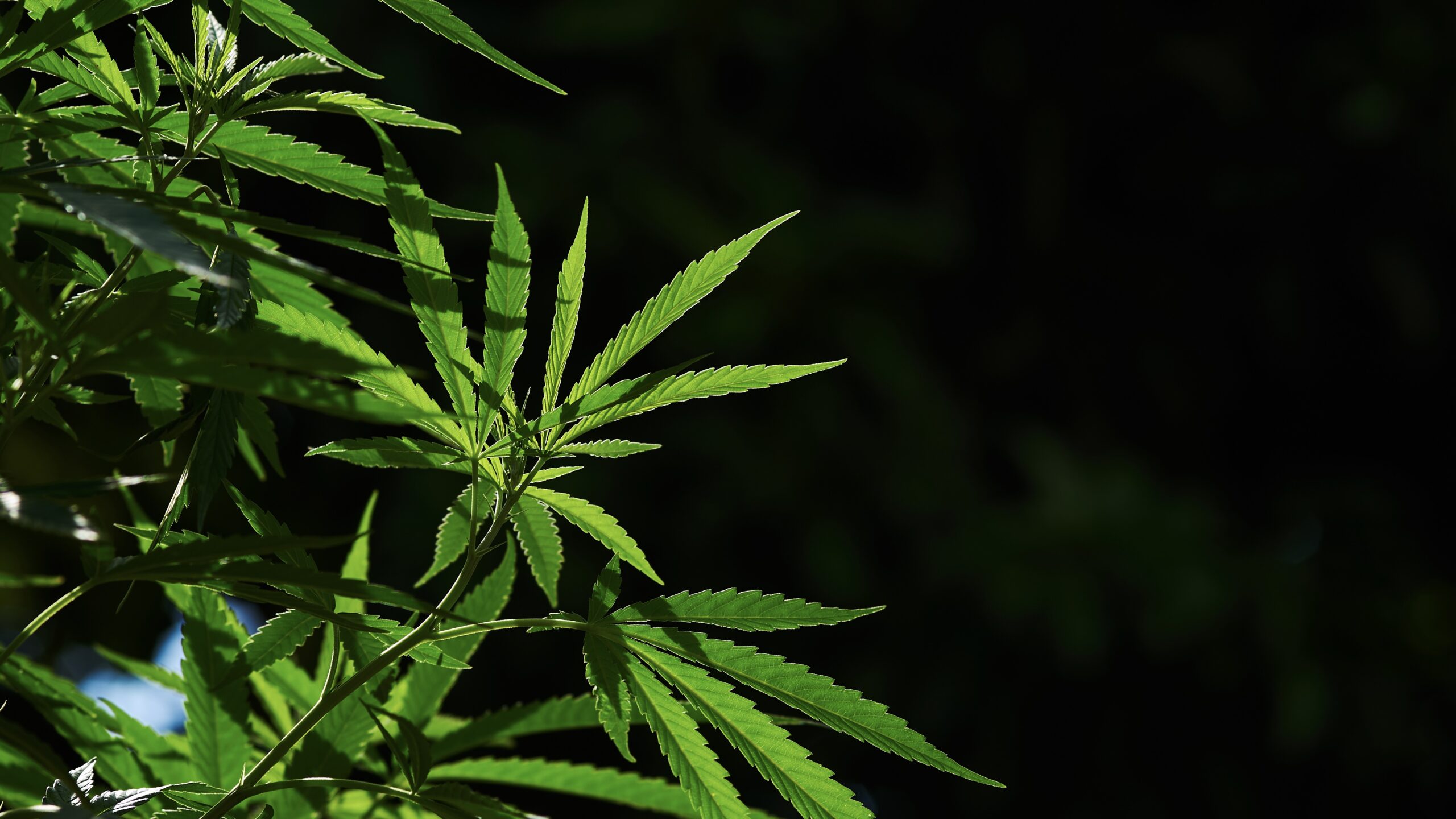Several ASX companies are undergoing rigorous clinical trials to gain regulatory approval for their cannabinoid products
BOD Australia could have the first Schedule 3 CBD product in Australia following positive results from its Phase 2B Can-Rest Insomnia trial
Neurotech’s broad-spectrum cannabinoid drug therapy NTI164 is currently being investigated across three clinical trials
For thousands of years, the cannabis plant has been recognised for its medicinal attributes. Dating as far back as 2800 BC, cannabis was employed in the treatment of diverse health conditions and was included in Emperor Shen Nung’s ancient pharmacopoeia.
Nung is considered the father of Chinese medicine and believed to have invented the treatment of acupuncture. But cannabis hasn’t been without its controversies and throughout much of the 1900s was largely demonised and as a consequence out of favour for medicinal use.
However, stigma associated with cannabis-based medicine and health products is well and truly abating. In light of the increasing global recognition of medicinal cannabinoids, Australia’s Therapeutic Goods Administration (TGA) reclassified low-dose cannabidiol (CBD) from a prescription medication (Schedule 4) to a pharmacist-only medicine (Schedule 3).
The decision enabled TGA approved low-dose CBD containing products included on the Australian Register of Therapeutic Goods (ARTG) for use in adults, to be supplied over-the-counter (OTC) by a pharmacist, without a prescription from February 2021.
It all sounded good in theory for cannabinoid products to be sold OTC as long as they’re below the allowed dosage of 150mg/day and included on the ARTG but in practice it hasn’t worked out that way…well yet anyway.
You see there are currently no TGA cannabinoid approved products on the ARTG that meet the Schedule 3 criteria.
The TGA’s requirement for all Schedule 3 cannabinoid medications to be included on ARTG has faced criticism given that proving efficacy is a primary prerequisite, which predominantly requires arduous, expensive and time consuming clinical trials.
Trials are generally divided into three phases with Phase 1 focusing on safety, Phase 2 testing for effectiveness and Phase 3 examining whether the new drug is an improvement on existing treatment.
Worth reading Clinical Trials 101: How to know your placebos from blinded studies
Medicines not included on the ARTG are known as unapproved medicines and according to the TGA have not been evaluated by the authority for quality, safety and effectiveness.
Unapproved CBD medicines can continue to be accessed via the Special Access Scheme (SAS) or Authorised Prescriber (AP) scheme on prescription only.
In terms of cannabis companies providing medicinal cannabis products under the SAS or AP scheme, the list is long.
Neurotech (ASX:NTI) executive director Dr Thomas Duthy told Stockhead he’s noticed a significant uptick in fines issued by the TGA to companies making false or misleading medical claims relating to their cannabis-derived products sold in Australia.
“There is an abundance of cannabis derived products available in Australia, including CBD products,” he says.
Furthermore, Duthy says since July 2023 under the TGA’s TGO 93 cannabis reforms manufactured products for sale must also comply with good manufacturing practice (GMP) which may be an impost for some companies who source overseas material.
“We find it difficult to understand where the sustainable competitive advantage lies for such products unless it’s cost-related,” he says.
“Hence, we are following the more time-consuming and more expensive regulated drug product pathway for NTI164 noting the substantial back-end rewards on offer, if successful.”
There are several ASX stocks keen to find validation for their cannabinoid products and in turn gain approval by the likes of the TGA or US Food and Drug Administration (FDA). Here’s some we’ve noticed undertaking clinical trials.
Bod Australia (ASX:BOD)
BOD is in pole position to have the first Schedule 3 CBD product in the Australian market after earlier this month announcing positive preliminary results from its Phase 2B Can-Rest Insomnia trial.
Complete results are expected in the next few weeks, including secondary and tertiary endpoints which include relief from anxiety and stress.
The trial examined effects of BOD’s Schedule 3 CBD formulation on insomnia symptoms in 208 participants over eight weeks.
Participants were randomly assigned to receive daily doses of CBD at 50mg, CBD at 100mg, or a placebo. The primary endpoint was the comparison of Insomnia Severity Inventory (ISI) scores for each dose against the placebo.
ISI scores were collected at baseline, week 4, and week 8. The trial also assessed sleep using smartwatch data and measured anxiety and stress using the DASS-21 questionnaire.
Out of the 208 participants, 194 completed the study, and 208 were included in the intent-to-treat analysis, while 180 were part of the per protocol analysis.
BOD says analysis of the primary endpoint on the per protocol population, showed a statistically significant benefit of CBD 100mg compared to placebo when tested at the 0.05 statistical significance level. A significance level of 0.05 indicates a 5% risk that the results occurred by chance.
CEO Jo Patterson says BOD plans to continue commercialisation discussions and meetings with the TGA.
“The trial completion marks a significant breakthrough for Bod for our uniquely formulated Schedule 3 CBD product.
“The singularity of this product is in its soft gel format – utilising a patent protected encapsulation technology, presents enormous opportunity both through existing permitted pathways, and through other global markets,” she says.
“As we know, sleep is so central to our health and wellbeing, and the birth of this new product is certainly an exciting journey not only for our business but the cannabis market more broadly.”
Neurotech
NTI is following in the footsteps of 2023 biotech market darling Neuren Pharmaceuticals (ASX:NEU) with its proprietary broad-spectrum cannabinoid drug therapy NTI164 being investigated as a treatment for Rett syndrome.
In March this year NEU announced that its large US pharma partner Arcadia Pharmaceuticals (NASDAQ:ACAD) had received FDA approval for its drug trofinetide, now marketed under the name Daybue.
NTI’s proprietary broad-spectrum cannabinoid drug therapy NTI164 is currently being investigated across three clinical trials in paediatric patients suffering from autism, Rett Syndrome and PANDAS/PANS, which are neurological disorders characterised by elevated neuroinflammatory processes.
“We believe NTI164 is ideally suited to lower and therefore improve clinical symptoms as has already been shown over 52 weeks of daily treatment in our Phase 1/2 trial in autism,” he says.
“We are developing NTI164 as a therapy for predominately rare paediatric neurological disorders, where safe and effective therapies are lacking.”
He says unlike most other companies who manufacture cannabis-derived treatments, NTI are going down the drug development route to show NTI164 is safe and effective in clinical trials to satisfy regulators such as the TGA or US FDA.
“This ultimately allows Neurotech to make a substantiated medical claim and achieve superior pricing for NTI164 along with potential reimbursement from private or government payers,” he says.
“A working example of our strategy would be a drug called Epidolex which is pure CBD oil from a cannabis plant which has been developed and approved for two rare epileptic disorders called Lennox-Gastaut and Dravet Syndrome.
“This drug generated sales of US$736 million in 2022.”
He says NTI164 is only available to patients under a clinical trial, or in the case of our initial Phase 1/2 clinical trial in autism, to those patients who completed the trial and wished to continue under a special access scheme arrangement with their doctor.
MGC Pharmaceuticals (ASX:MXC)
European-based MXC has conducted and finished several trials of its medicinal products including:
Clinical study undertaken into the effect of its epilepsy treatment CannEpil on driving performance, which was found to be safe
Phase 2 trial for its dementia treatment, CogniCann demonstrates full safety and preliminary efficacy profile moving to Phase 2B
Furthermore the company has had several research papers published with leading institutions including RMIT on The Pathophysiology and the Therapeutic Potential of Cannabinoids in Prostate Cancer.
“As a pharmaceutical company, MGC recognises the importance of conducting clinical trials on its products as future medicines,” CEO and managing director Roby Zomer told Stockhead.
“Our intention is to provide medicines that are safe and effective, ensuring both patients and doctors have the assurance that, today, tomorrow, and in the years to come, patients will receive the same safe and effective treatment without any changes.
“Furthermore, if we want the industry to be viewed more as a life science industry, we need to bridge the gap in research and invest in more clinical evidence to support the legitimacy of using Cannabis as medicine, following GMP and GCP guidelines.”
“MGC sees the Australian space as great hub to conduct its studies and take it forward to the US FDA approvals afterwards.”
Zelira Therapeutics (ASX:ZLD)
ZLD rocked the medical world in May when it said that it had come up with an alternative drug for diabetic nerve pain that performed better than Pfizer’s Lyrica.
Zelira successfully completed an IRB-approved, multi-arm head-to-head study of its proprietary diabetic nerve pain drug ZLT-L-007 against the multi-billion-dollar annual revenue drug Lyrica.
The study showed that ZLT-L-007, a cannabinoid-based oral capsule, was safe and well-tolerated, meeting the primary endpoint for safety with no Serious Adverse Events (SAE).
The study also met its secondary endpoints, including significant decreases in Visual Analog Scale (VAS) and Short-form McGill scores, among others.
According to research, the global diabetes drug market was worth at least US$62 billion in 2022, and is projected to double by 2032.
As many as 50% of people with diabetes suffer from nerve pain, and half of all amputations annually are associated with the disease.
ZLD now plans to progress ZLT-L-007 into further formal clinical trials on a path towards regulatory approval.
ZLD are currently raising funds through the HOPE SPV (Special Purpose Vehicle) to progress their proprietary cannabinoid-based medicine for autism spectrum disorder through the necessary clinical trial and development program with the intention of achieving formal FDA approval. To date, US$11.85 million of the total US$35 million has been committed by investors.
Incannex Healthcare (ASX:IHL)
IHL has the world’s largest portfolio of patented medicinal cannabinoid drug formulations and psychedelic treatment protocols.
IHL has an upcoming pivotal (Phase 2/3) study of its novel cannabinoid combination for patients with obstructive sleep apnoea after promising Phase 2 results were released last year.
Results found that IHL-42X reduced apnoea hypopnea index (AHI) by an average of 50.7% versus baseline assessments, and 25% of participants experienced greater than an 80% reduction in AHI measure.
IHL is also looking at the effect of its anti-inflammatory drug for arthritis. IHL announced in July it had received approval from HREC for the lead site, Emeritus Research in Victoria for the Phase 2 blinded, placebo controlled clinical trial to determine the safety and effect on pain and function of IHL-675A in patients with rheumatoid arthritis.
The Phase 2 trial follows a successful Phase 1 trial where IHL-675A was observed to be well tolerated.
The company is placing a significant importance on the US market, given that it’s the largest pharmaceutical market in the world, with plans to redomicile its shares to the US on the Nasdaq exchange.
IHL CEO Joel Latham told Stockhead its focus revolves around getting its drugs registered with the US FDA following successful clinical trials.
“We also have other early stage cannabinoid assets which we plan to take to trial in the future,” he says
“We see ourselves as a fully fledged biotech so we want to develop novel treatments with are clinically and scientifically validated to achieve registration with the major health regulators globally.”
Emyria (ASX:EMD)
EMD’s proprietary ultra-pure synthetic CBD capsule EMD RX5 is targeting psychological distress as an OTC medication.
Managing director Michael Winlo says its Phase 3 clinical trial is active but on hold while the company optimises the manufacturing of its product.
“We’re more than halfway there and will be in a position to provide an update once our optimisation work is completed,” he says.
“We have a commercialisation partner with Aspen Pharmacare Australia, who will help with registration, sales and distribution.
“For EMD RX5 to become an accepted, recognised therapeutic we need to put strong evidence behind its use and demonstrate where it works best so trials are the responsible path to do clinically and make sense from a commercial perspective over the long term as well.”
The company also has high potency CBD capsules EMD RX7 and EMD RX9, which it plans to advance through clinical trials for prescription indications.
Avecho (ASX:AVE)
AVE recently undertook a $6 million capital raise to advance its Phase 3 TPM enhanced CBD soft gel capsule to manage the symptoms of insomnia.
AVH’s Phase 3 study testing its oral CBD softgel capsule for the treatment of insomnia willcompare nightly CBD doses of 75 and 150mg CBD with placebo for their ability to improve sleep.
The company says manufacturing the capsules for the trial is underway at Procaps Group (USA) with clinical supply expected to be available soon.
The BOD, NTI, MXC, ZLD, IHL, EMD, AVE share price today:
At Stockhead, we tell it like it is. While Neurotech, MGC Pharmaceuticals and Incannex are Stockhead advertisers, they did not sponsor this article.
The post Clinical results for ancient therapy help ASX cannabis stocks weed out competition appeared first on Stockhead.






















